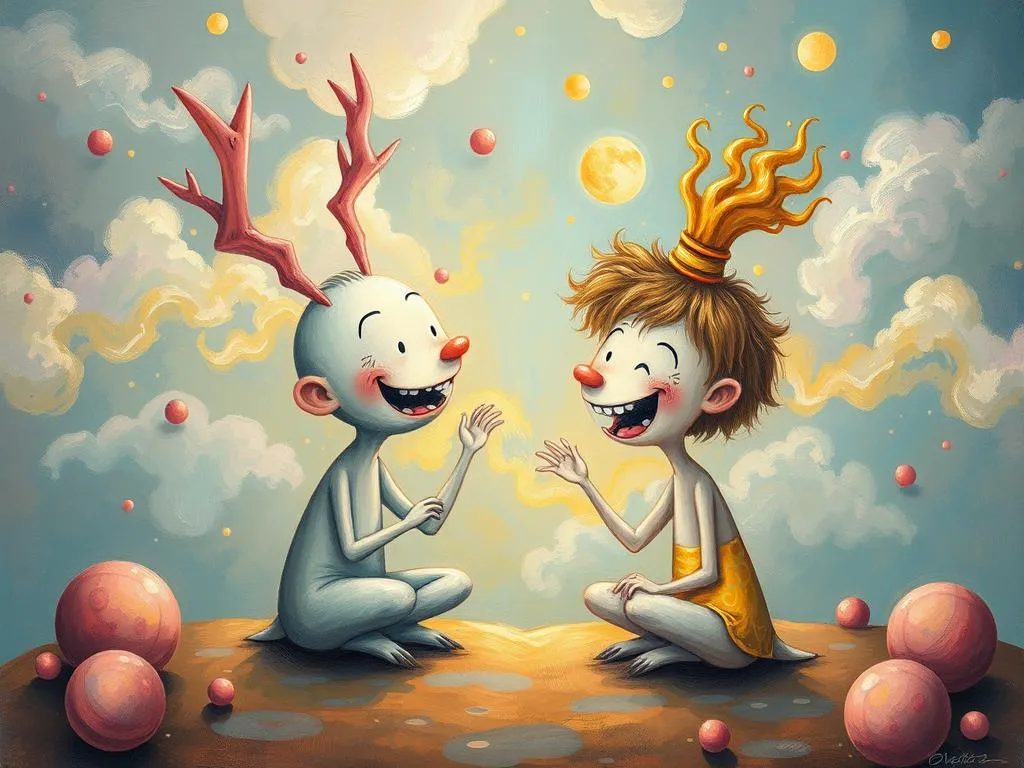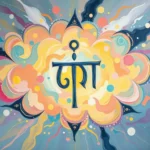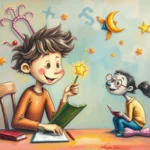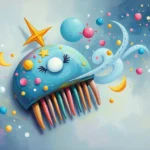
Dreams have a way of weaving intricate stories that reflect our inner thoughts, fears, and aspirations. Have you ever woken up from a dream, heart racing, unsure what it all meant? You’re not alone. Many of us find ourselves puzzled by the vivid narratives our minds create while we sleep. Sometimes, these dreams feel like coded messages—inviting us to unravel their meanings, much like a secret language.
In this journey, we’ll explore the rich tapestry of dream symbolism, drawing on cultural insights, psychological perspectives, and practical advice. By the end, not only will you have a deeper understanding of your dreams, but you’ll also gain tools to harness their potential for personal growth. So, grab a cup of tea, and let’s dive into the fascinating world of dreams together.
Dreamscapes: The Language of Symbols
Dreams speak to us in symbols, often laden with cultural nuances and personal meanings. These symbols can range from the mundane—like a house or a car—to the extraordinary, such as flying or encountering mythical creatures. Understanding these symbols is the first step in deciphering the messages hidden within your dreams.
For instance, houses in dreams often represent the self. Each room can symbolize different aspects of your personality or life experiences. A well-kept house might indicate a sense of order and control, while a dilapidated one could reflect feelings of neglect or chaos. Similarly, water is a powerful symbol, frequently associated with emotions. Calm water might suggest tranquility, while turbulent waves may indicate anxiety or emotional upheaval.
Another example lies in animals. They often represent instincts or traits you associate with them. A lion could signify courage and strength, while a snake might evoke feelings of treachery or transformation. The key is to reflect on your personal associations with these symbols. What do they evoke for you?
In Eastern cultures, dreams often serve as prophetic messages or warnings, while in Western psychology, they are seen as reflections of the subconscious mind. Consider how your cultural background shapes your interpretation. This can enrich your understanding and provide layers of meaning to the symbols you encounter.
Waking Dreams: Scenarios from the Subconscious
Let’s bring our exploration to life with some common dream scenarios. Each scenario offers a glimpse into what your subconscious might be communicating through its rich symbolism.
The Falling Dream
Imagine you’re in a dream and suddenly find yourself plummeting from a great height. Your heart races as you wake up just before hitting the ground. Falling often symbolizes feelings of loss of control or insecurity in your waking life. This might be related to a recent change, such as starting a new job or ending a relationship. What areas of your life do you feel uncertain about?
The Exam Dream
Picture yourself sitting in a classroom, staring blankly at an exam paper you’re unprepared for. You feel the pressure mounting as time ticks away. This scenario is common and often reflects feelings of inadequacy or fear of failure. Exams in dreams can symbolize self-evaluation or external judgment. Consider what aspects of your life you feel are being evaluated. Are you putting too much pressure on yourself?
The Naked Dream
In this dream, you find yourself unexpectedly naked in a public place, and a wave of embarrassment washes over you. This vulnerability often represents a fear of exposure or judgment. Being naked can signify a desire for authenticity or an underlying concern about being judged for who you are. What parts of yourself do you feel vulnerable about?
The Chase Dream
You’re being chased by an unseen force, adrenaline pumping as you run for your life. This dream can symbolize avoidance—running from responsibilities, fears, or emotions. The pursuer often represents something you’re trying to evade in your waking life. What are you avoiding? What’s holding you back?
The Transformation Dream
In this dream, you look in the mirror and see yourself transforming into someone or something entirely different. This can indicate personal growth, change, or a desire for reinvention. Transformation dreams often signify a shift in your identity or a need to embrace new aspects of yourself. What changes are you experiencing, and how do they resonate with your self-image?
By examining these scenarios, you can start to identify patterns and themes that resonate with your own experiences. Each dream is a narrative, an invitation to reflect on your emotions, thoughts, and the circumstances surrounding your life.
Dreaming Forward: The Path to Personal Growth
As we navigate the complexities of our dreams, we can harness their insights for personal growth. Here are some practical steps to integrate your dream interpretations into your waking life.
Keep a Dream Journal
One of the most effective ways to understand your dreams better is by maintaining a dream journal. Each morning, take a few minutes to jot down your dreams, even if they seem fragmented or nonsensical. Over time, you’ll begin to recognize recurring symbols and themes, which can provide profound insights into your subconscious mind.
Reflect on Your Emotions
When interpreting your dreams, pay close attention to your emotions during the dream and upon waking. Feelings can be powerful indicators of what your subconscious is trying to communicate. Are there unresolved feelings in your life that your dreams are bringing to the surface? Consider dedicating time for self-reflection after particularly vivid dreams.
Explore Cultural Contexts
Delve into the cultural meanings of symbols present in your dreams. Understanding different cultural perspectives can enrich your interpretations and provide new layers of meaning. For example, the symbolism of snakes can vary widely—from transformation and healing in some cultures to deceit and danger in others.
Seek Connections in Your Waking Life
Look for connections between your dreams and your waking experiences. Are there underlying issues or patterns that your dreams are reflecting? Sometimes, dreams prompt us to confront challenges we can’t address during our waking hours. Use your dreams as a guide to tackle unresolved issues or fears.
Embrace the Journey
Remember, dream interpretation is a journey rather than a destination. While it can be enlightening, it’s essential to approach this exploration with curiosity rather than a quest for definitive answers. Each dream is a piece of a larger puzzle that reflects your unique experiences, thoughts, and feelings. Allow yourself to embrace the mystery and wonder of your dreams.
In the end, our dreams carry messages that can guide us toward greater self-awareness and understanding. They encourage us to confront our fears, celebrate our triumphs, and explore the depths of our psyche. By mastering the symbolism within our dreams, we unlock a powerful tool for personal growth and transformation.
As you continue on this journey, take a moment to reflect: What wisdom do your dreams hold for you? Embrace the beauty of your dreamscapes, for they are not just whispers of the night but profound conversations with your inner self.







